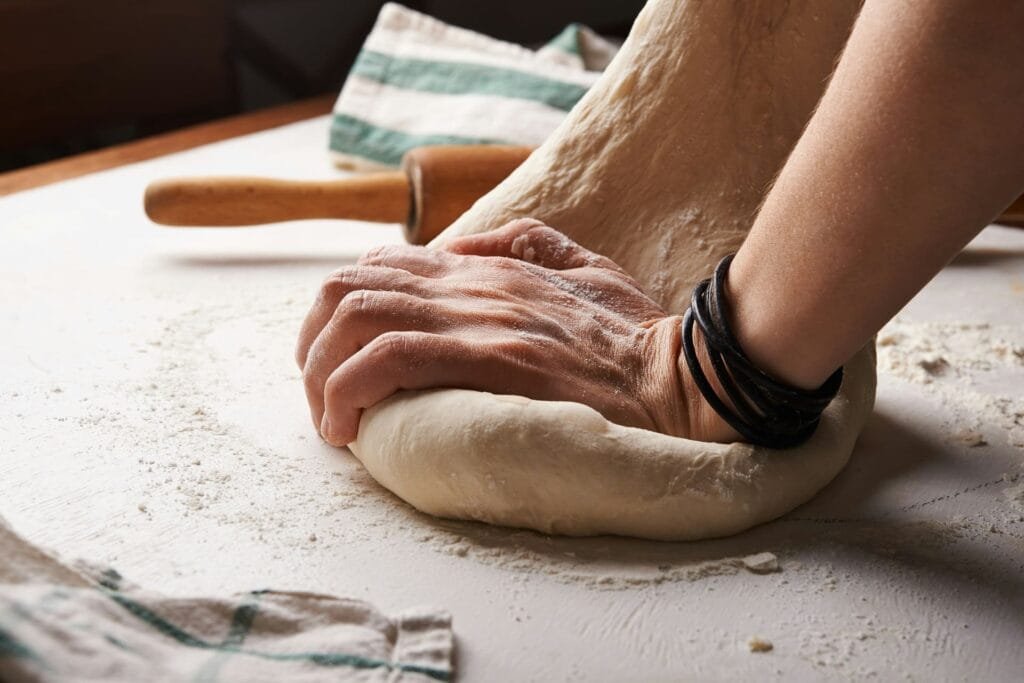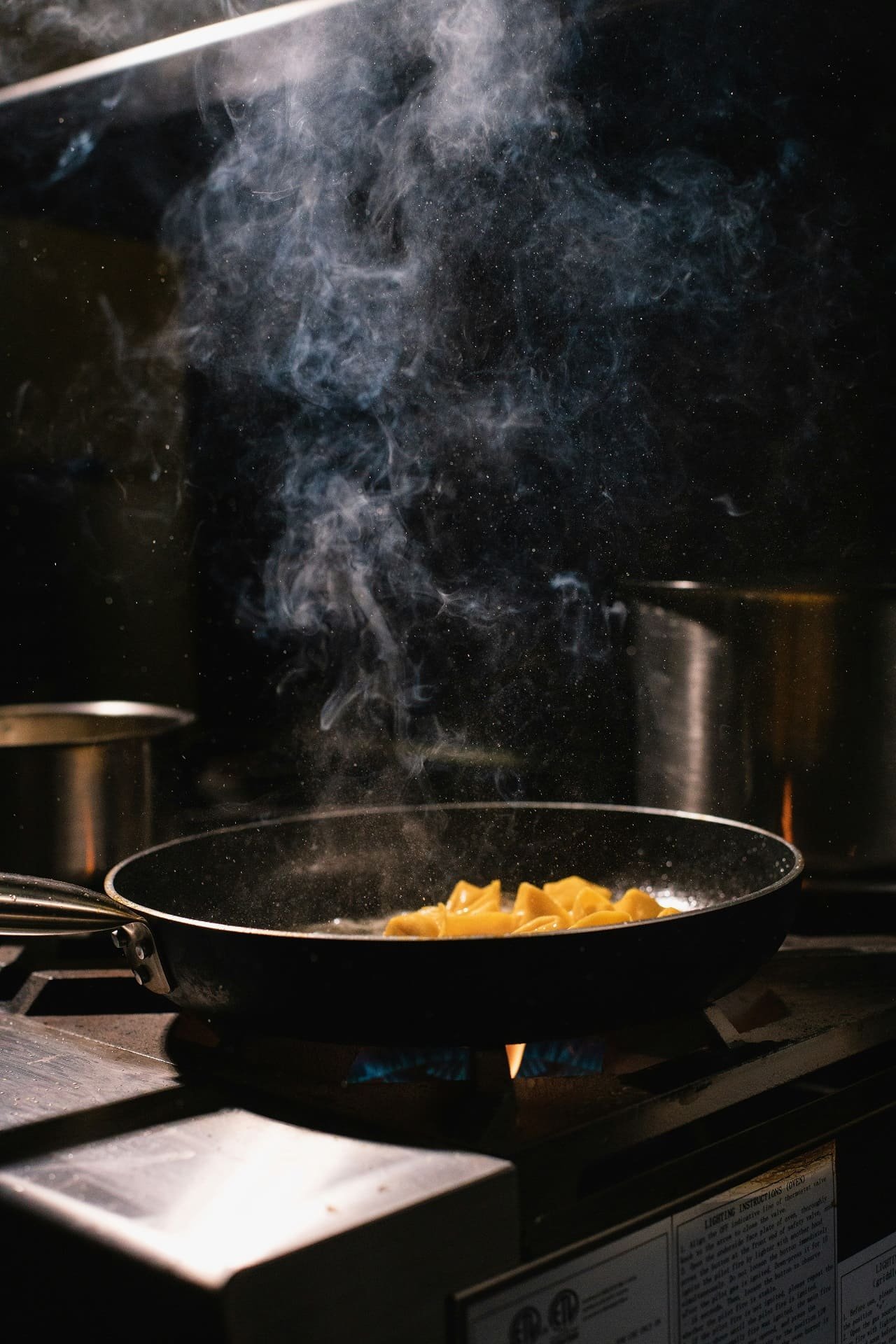Cooking is more than just following a recipe; it’s an act of mindfulness, a symphony of sensory experiences waiting to be savored. Cooking is a full-body experience where being present in the moment isn’t just beneficial—it’s essential. By engaging all your senses and practicing mindfulness in the kitchen, you can unlock a deeper connection to your food and discover valuable lessons applicable to all aspects of life.
The Symphony of the Senses
The Art of Listening: Hearing—The Overlooked Ally
Have you ever noticed that you can tell when something’s ready just by the sound it makes? A steak sizzling in a pan will go from a sharp, aggressive hiss to a gentle crackle when it’s perfectly seared. The bubbling of a pot of water changes pitch just before it boils over. Sound is an underrated yet critical sense in cooking. In the kitchen, listening isn’t just a passive activity; it’s a skill that keeps you connected to what’s happening in the moment. The snap of fresh vegetables as you chop, the change in tone as something sautés, or even the hum of a well-maintained kitchen can offer valuable information. Hearing isn’t just about reacting; it’s about being attuned to subtle changes that signal when to act. Outside the kitchen, listening—both literally and metaphorically—sharpens your awareness, helping you identify opportunities or challenges before they become obvious.
The Sight of Success

Cooking is as much a visual art as it is a practical one. The first time I worked at Le Manoir Aux Quat’Saison, I was struck by the precision of plating. Every dish was a masterpiece, each element placed with care. The chocolatiers and pastry chefs were true artists, winning awards year after year with their chocolate and sugar creations, but everything from the breakfasts the hotel served in the mornings to the canapes and champagne guests received on arrival was exquisite in every detail. It taught me that seeing the bigger picture is about appreciating the harmony of all parts—from the smallest garnish to the overarching vision—and understanding that excellence lies in the details that support the whole.
Smell: The Early Warning System

If you’ve ever smelled something burning, you know how important this sense is. Smell is often the first indicator that something needs your attention. It’s your early warning system. In life and work, your “sense of smell” might be intuition—that gut feeling that tells you something’s off before there’s tangible evidence. Trust it; it’s usually right.
The Unsung Hero: Touch

Touch is a surprisingly vital sense in cooking. You learn to feel when dough is kneaded enough, when a steak has reached medium rare, or when pasta is perfectly al dente. It’s tactile intuition that comes with practice and attention, grounding you in the physical act of creation.
Taste—The Final Judge
Taste is the ultimate test. It’s where all the elements—sound, sight, smell, and touch—come together. A dish might look beautiful and smell incredible, but if it doesn’t taste right, none of that matters. Taste brings it all home, reminding you why you started in the first place.

From Kitchen to Life: Applying Culinary Mindfulness
Cooking isn’t just about perfecting a dish; it’s about sharpening your awareness and honing your instincts. The lessons you learn—like trusting your intuition, paying attention to detail, and adapting on the fly—can find their place outside the kitchen too, whether in relationships, creative projects, or professional challenges. By practicing mindfulness in your daily life, you can improve your focus, reduce stress, and enhance your overall well-being.
A Recipe for Presence
Cooking with all five senses makes it a deeply immersive and mindful experience. When you’re fully present, you’re not just cooking—you’re creating. It’s a reminder to slow down and focus on what’s in front of you, whether it’s a dish or a task. This mindfulness allows you to adjust course when needed and savor the process, not just the outcome.
Embrace the Sensory Symphony
So, the next time you’re in the kitchen, take a moment to truly experience the act of cooking. Look, listen, touch, smell, taste. Embrace the symphony of senses and discover the joy of being present. Let these moments remind you to slow down and be present—not just at the stove, but in everything you do.

